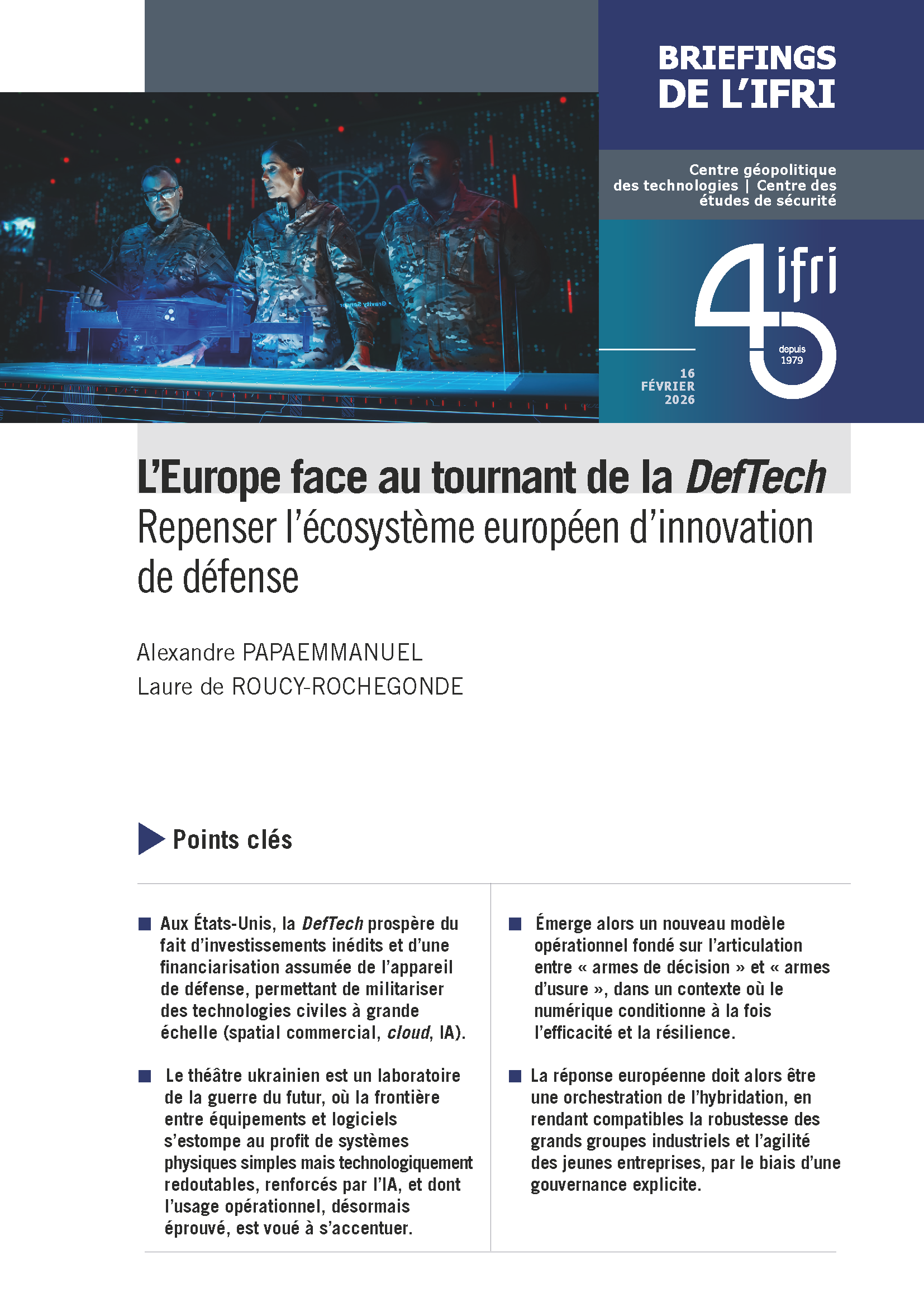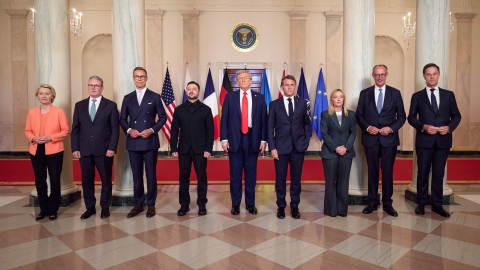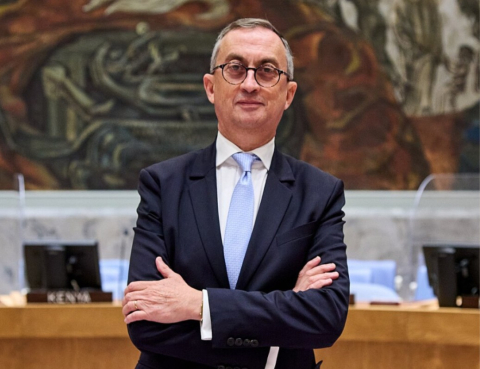
Informations pratiques
Centres et programmes liés
The deepening strategic rivalry between the United States and China has repositioned geopolitics at the center of the international system today.
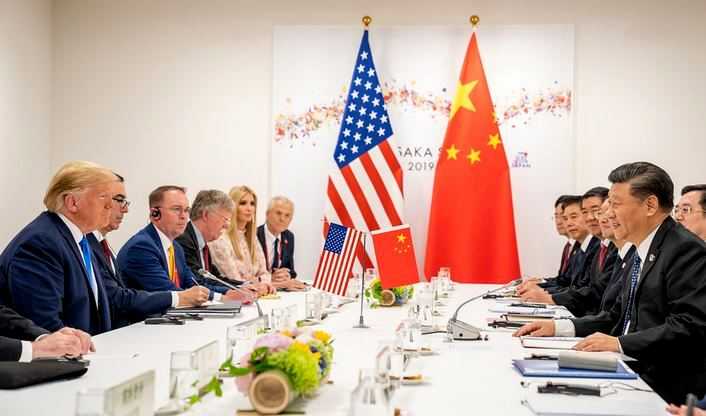
The ongoing “trade war” is only one dimension of growing frictions, which include a competition for technological leadership, a struggle for strategic and military preeminence and antagonism over opposing political systems and their underlying values. While Asia and Europe are confronted with major challenges beyond the Sino-US rivalry, actors in these regions are increasingly compelled to adjust to new geopolitical realities. What does this hold for regional stability in Asia? How can Europe navigate this structural change?
09:15 Opening Remarks
- Thierry de Montbrial, Founder and Executive Chairman, Ifri
- François Chih-chung Wu, Representative, Taipei Representative Office in France
The US-China rivalry: The contours of confrontation and entente
09:40-11:00
- David Rank, Senior Advisor, Cohen Group, former Deputy Chief of Mission, US Embassy in China
- Song Luzheng, Research Fellow, China Institute, Fudan University
- Discussant: John Seaman, Research Fellow, Center for Asian Studies, Ifri
- Moderated by Laurence Nardon, Head, North America Program, Ifri
Adjusting to the US-China rivalry in East Asia
11:15-13:00
- Chikako Ueki, Professor, Graduate School of Asia-Pacific Studies, Waseda University
- Malcolm Cook, Senior Fellow, Institute of Southeast Asian Studies (ISEAS) - Yusof Ishak Institute
- Yujen Kuo, Professor, Institute of China and Asia-Pacific Studies, National Sun Yat-sen University, and Executive Director, Institute for National Policy Research (INPR)
- Yul Sohn, Professor, Graduate School of International Studies (GSIS), Yonsei University, and President, East Asia Institute (EAI)
- Moderated by Françoise Nicolas, Director, Center for Asian Studies, Ifri
Lunch break - 13:00-14:30
Toward a European Way? Implications of the US-China rivalry for Europe
14:30-16:30
- Geopolitics and diplomacy: Monika Sie Dhian Ho, Director General, Netherlands Institute of International Relations, Clingendael
- Economics and trade: Aurélien Billot, Head of Trade and Development Policy, General Secretariat for European Affairs, Office of the Prime Minister of France
- Technology and industrial policy: André Loesekrug-Pietri, Speaker for Joint European Disruptive Initiative (JEDI)
- Moderated by Eric-André Martin, Senior Advisor to the Director, Ifri
Sujets liés
Autres événements

Quelle politique de défense en Allemagne ?
Face à la guerre en Ukraine et à l’instabilité géopolitique en Europe dans un cadre transatlantique perturbé, l’Allemagne a amorcé un tournant majeur dans sa politique de défense, avec une hausse significative des dépenses militaires, la modernisation de la Bundeswehr et le débat sur un éventuel retour du service militaire obligatoire.
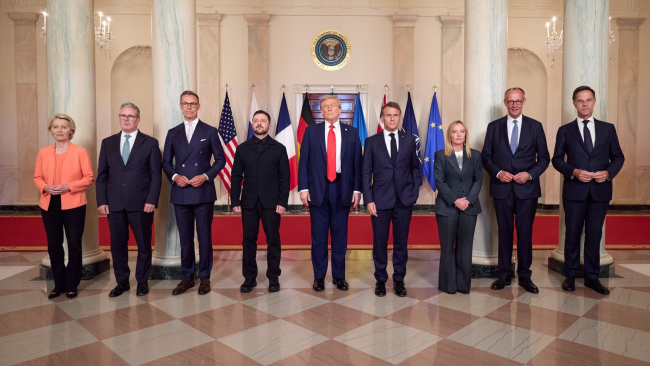
Quatre ans de guerre en Ukraine : verra-t-on la fin du conflit en 2026 ?
Un déjeuner débat autour de Tatiana Kastouéva-Jean, Directrice du Centre Russie/NEI, et Élie Tenenbaum, directeur du

Quel partenariat technologique avec l’Inde ?
Le 16ème Sommet UE-Inde, qui s’est tenu le 27 janvier à New Delhi en présence des dirigeants européens António Costa, Ursula von der Leyen, et du Premier ministre Narendra Modi, marque un tournant dans le renforcement des liens entre l'Union européenne et l'Inde. Parallèlement, les visites bilatérales se multiplient, à l’image de celle du Président français qui s’est rendu en Inde mi-février pour participer au Sommet sur l’Intelligence Artificielle.



